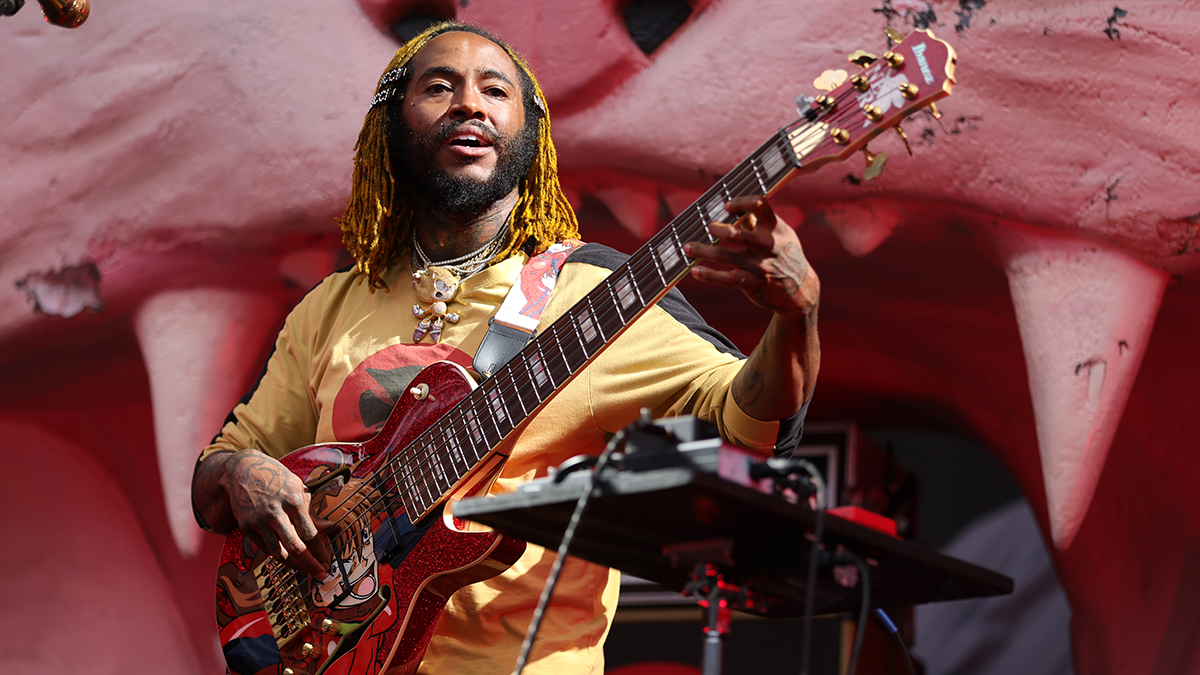“Am I supposed to feel jealous or something? Sid Vicious had his moments – but I can have my moments as well. I’m no shrinking violet!” Glen Matlock on how the Sex Pistols have changed, while his bass rig never has and never will
The punk icons’ most accomplished musician explains what Frank Carter has brought to the band, the financial advantages of not using a pick, and the chance of new music with their latest recruit
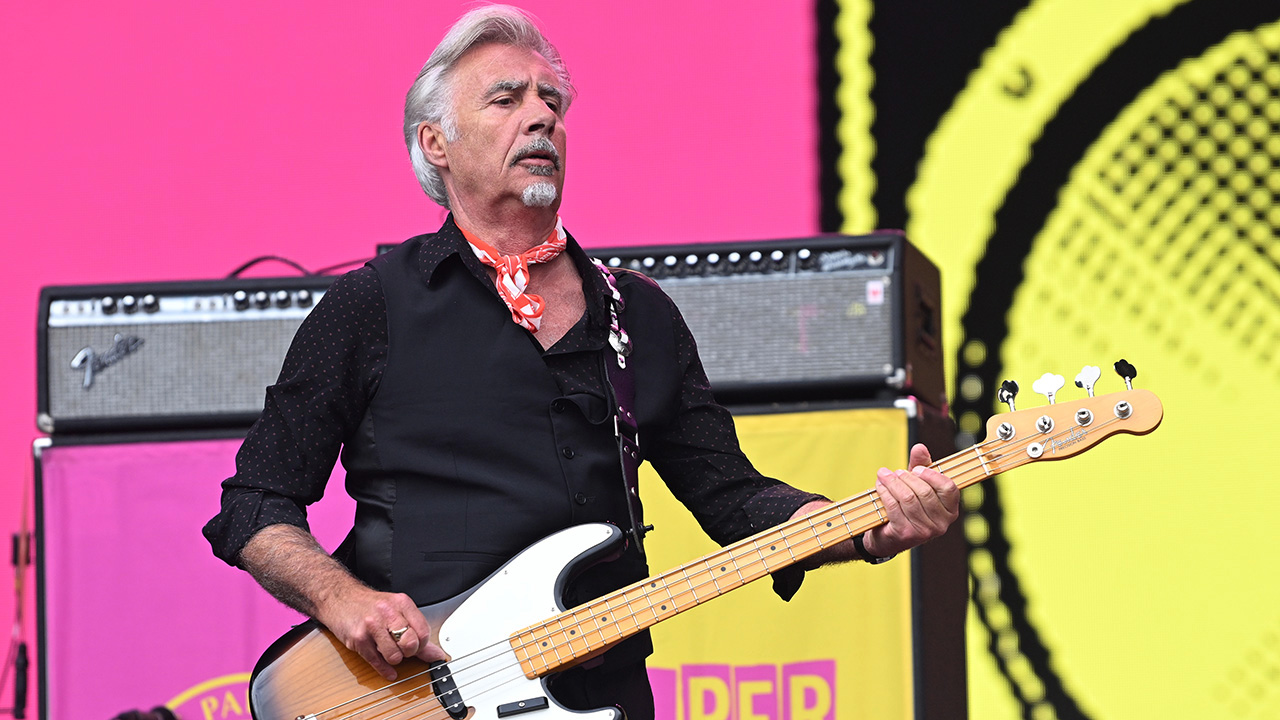
All the latest guitar news, interviews, lessons, reviews, deals and more, direct to your inbox!
You are now subscribed
Your newsletter sign-up was successful
Sex Pistol Glen Matlock likes to keep it simple.
“I’m not much of a gear buff,” he tells Bass Player. “I don’t collect stuff. I kind of struggle that my roadie wants me to use an inline tuner! But I do have a new bass, a Fender Precision. I like it because it’s light, and I’m a bit older now. But I just plug it straight in, really.”
Regardless, he’s the most accomplished musician in the Pistols, and wrote or co-wrote many of the songs on their classic album, Never Mind the Bollocks. He doesn’t discount his bandmates, though.
“It goes without saying that Steve Jones, Paul Cook, and myself all learned to play together,” he says.
That gave them the chemistry they retain to this day, which has made things easier for former Gallows frontman Frank Carter, their replacement for John Lydon.
“Frank’s brought a new energy,” the bassist says. “He’s younger than us, and he’s got a very positive, forward attitude. We all come off stage smiling, and the audience seems to smile as well.”
It’s going so that Matlock is open to making new music with Carter – though he’s not sure if the time is right or if it ever will be. For now the focus is on their touring plans.
All the latest guitar news, interviews, lessons, reviews, deals and more, direct to your inbox!
“I haven’t heard one person moaning who’s been to the shows,” he says.
And he’s not missing Lydon, who’s described the current Pistols lineup as “a clown’s circus.” Matlock says flatly: “He’s laid his bed.”
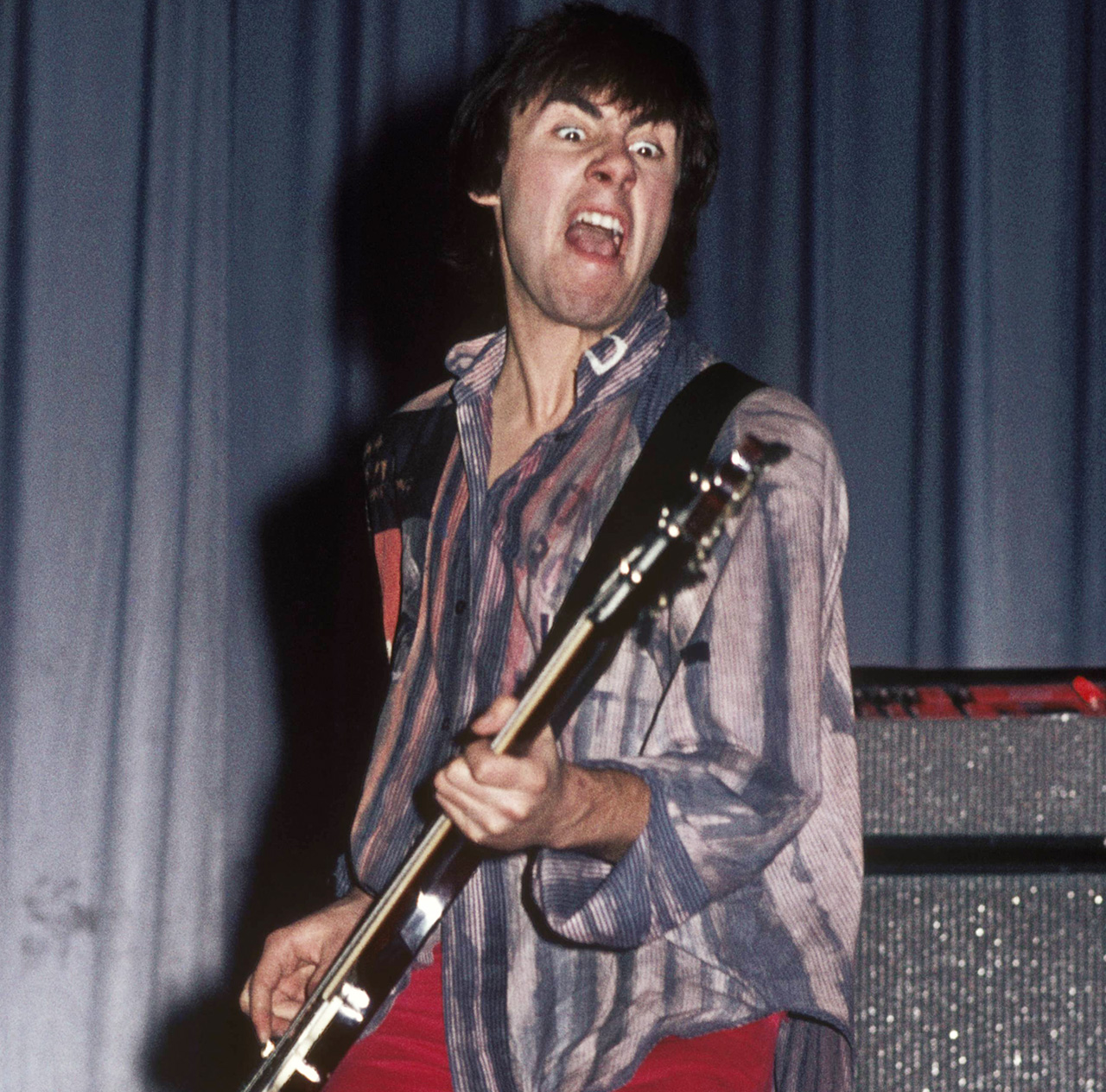
Frank Carter isn’t Johnny Rotten, but that doesn’t seem to adversely affect the Pistols shows.
“Before we did it, I told him, ‘You know you’re probably opening a can of worms – do you really need to do it?’ He said, ‘No, but I really fancy doing it. I want to do it.’ He stepped up to the plate.
“I’m at a stage in my life where I’m kind of doing things to suit myself. I think Steve and Paul probably are as well. We kind of click; we’re not the best of mates all over, but we’re certainly friendly enough. There’s a chemistry there. It’s very hard to deny, and Frank fit straight into that.”
Was that chemistry immediate in the Pistols’ early days?
“I think it was with Steve and Paul. John was a bit tricky, but he had something going for him. It was a totally different time; we were very young men trying to make our way in the world, and everybody was sort of pussyfooting around each other a little bit, and it kind of led to the way it went.”
Can you pinpoint what made what the band special?
“I always thought we were like a rail yard – you get three or four rail lines coming together and they cross over. There’s this big explosion of energy. Then we all went off in our own directions, maybe limping a little bit!”
Though you’ve always come back together.
“We’ve done stuff together over the years, and this just feels good. We’re the people, the musicians who play on the songs that we collectively wrote together in varying degrees.”
In the early days you were the most accomplished musician in the band. Did that impact the writing?
“If you look at the first three singles, I never claimed to have written them all, but I had a big hand in the catchy bits of them. My kind of songwriting and knowledge came from being a big fan of all the pirate radio stations we had in the '60s. On top of that, you had Tamla and Motown breaking through.
“There was a sort of three-and-a-half-minute mini-opera thing going on. I was kind of hip to that a little bit. I tried to put that forward in the band – make the song hooks a bit more organic, not just loads of good bits stuck together, which tends to happen with groups. That makes a good track, but doesn’t necessarily make a good song. And John had some fantastic lyrics.”
Is that essentially how songs like Anarchy in the U.K. and God Save the Queen came about?
“There was a lot of arguing about how the construction of the song would go. ‘You now, go around the chorus once, a little bridge bit afterwards.’”
What was your typical bass rig like in those days?
“I used exactly the same gear as I’ve got now, which is a Fender Precision; and I’ve got an old Fender Bassman, which I bought for £99 in a sale. I’ve never found a better-sounding amp, and I take it gingerly all around the world. And if it ain’t broke, don’t fix it. It’s straightforward, simple, and it works.”
I saw an advert about a studio. I showed it to Malcolm McLaren and he said, ‘Offer £1000.’ Without even seeing it! In the ‘70s that was a lot of money
You co-wrote the bulk of the songs on Never Mind the Bollocks, but left before the album was recorded. The credits of who played what and when aren’t really clear.
“Well, there’s I Want to be Me and No Fun, but my claim to fame is that all the songs that ended up on the album, I had a big hand in writing. If you want to hear my bass playing you’ve got to listen to the Spunk album [of demos], and then all the subsequent live stuff.”
What are your memories of the Spunk sessions, recorded in the Pistols' rehearsal space?
“I saw an advert in Melody Maker, about a studio on Denmark Street, which was London’s Tin Pan Alley in the West End, in Soho. I showed it to Malcolm McLaren and he said, ‘Call up the guy and offer him £1000.’ Without even seeing it! This was the ‘70s and that was a lot of money.
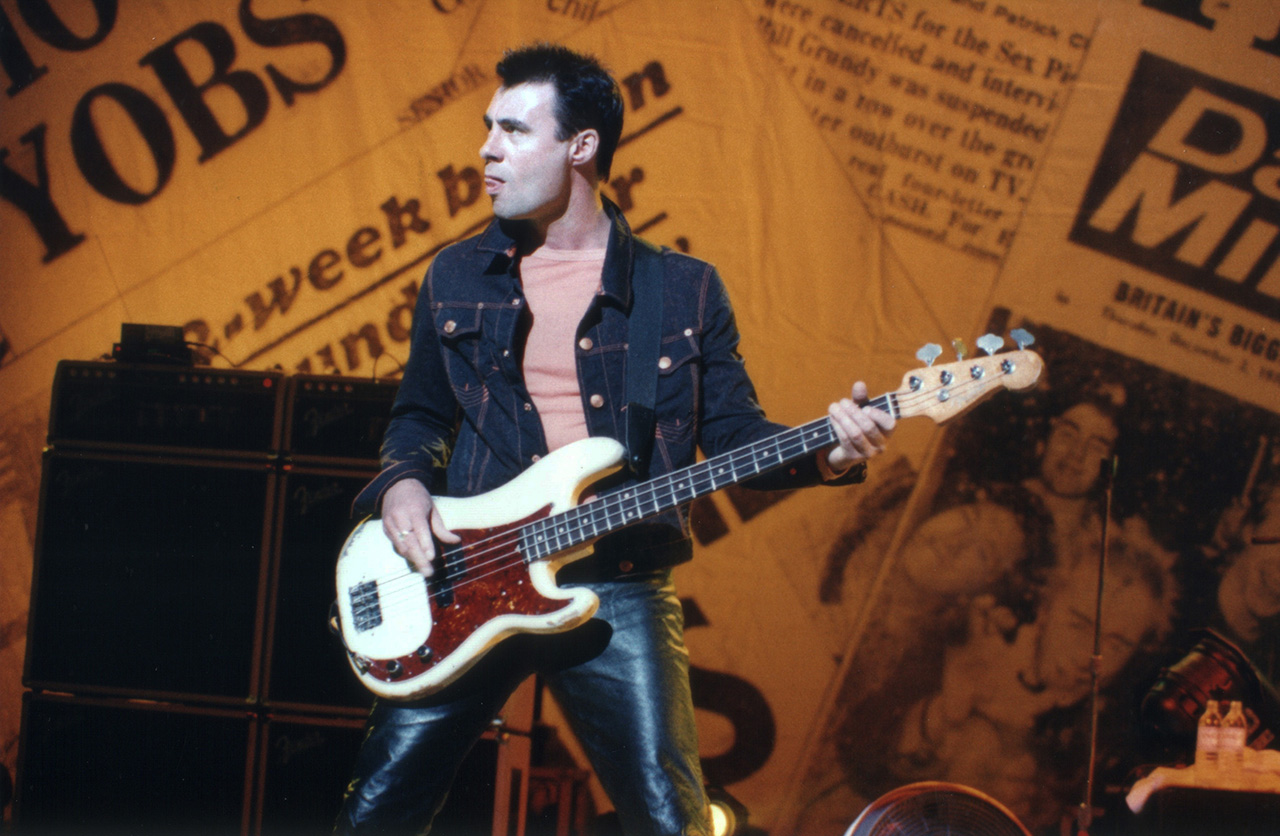
“So this guy answered the phone, and I said, ‘My friend, he’s mad, but he’s offering you £1000 without seeing it.’ He said, ‘I think we can talk business!’ We went to meet this guy, Bill Collins, who’d been managing Badfinger and had been a Beatles roadie.
“He had the place and was getting rid of it, so we got this tiny kind of loft, except it was on the ground floor, out the back of a Greek bookshop. That’s where we rehearsed every day and started knocking ideas around.
“With nothing better to do we’d meet up every day – even just to find out somebody didn’t have an idea; but at least you didn’t have to wait until next week to find out somebody didn’t have an idea!
“Then we started doing some shows, and we met Dave Goodman and Kim Thraves, who ran a PA company. We started doing shows with them, and when it was time to do some recording of demos, Dave had a full-track Revox.
“He said, ‘Why don’t we set it up in the rehearsal space?’ That’s what we did, and it sounded good. That’s where the Spunk album comes from, mainly. It sounded so good that we blagged some money from somewhere, went to a little studio, and just touched it up a little bit.”
Given your role in writing many of the songs that ended up on Never Mind the Bollocks, was it bizarre to watch Sid Vicious – who couldn’t play bass – replace you?
“It was going a bit weird with me and John; there was politics involved. I think John always thought it was me, Steve, and Paul against him, but it wasn’t quite like that. Then Sid came in, but he didn’t actually get on with John in the end anyway, so it worked against him.”
I never play with a pick. You’re always losing them – so over 50 years you save a real lot of money!
Sid’s imagery and rowdy, off-the-rails mentality are what people often associate with the band. What’s your perspective on that?
“Am I supposed to feel jealous or something?”
No, but the way the band is perceived often stems from Sid’s persona, though your contribution to the band is technically greater.
“I think Sid had his moments – but I can have my moments as well! I remember somebody was threatening me at a gig in the States in ’96, and I went off into the crowd trying to get him. I was told, ‘You can’t do that in America because you’ll get sued for a million dollars!’ But I’m no shrinking violet.”
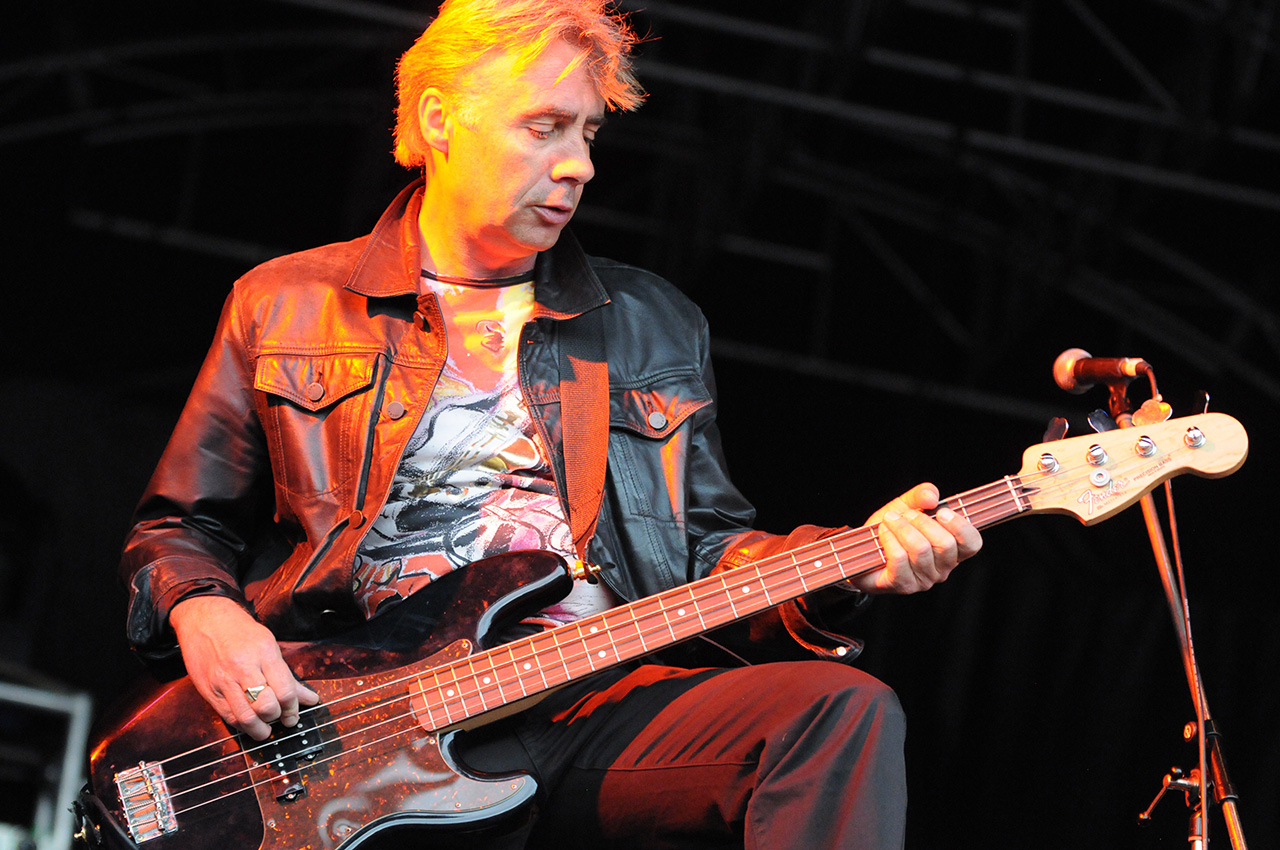
You touched on your gear earlier; but have you ever been tempted to experiment with your touring rig?
“No! It’s got a fantastic, warm valve sound. It’s got an Engle cabinet, and if you take the front off you think the speakers are in there, but they’re not. They’re right in the back corners of the cabinet. If you run out of room in your bag, you can get all your dirty washing in there at the end of the tour!”
Punk rock isn’t meant to be complicated anyway.
“It isn’t. And it’s all in the fingers, you know? There’s a whole host of bass players I kind of like, but you gotta just kinda caress it out with your fingers, and I never play with a pick. They’re probably about 50 cents each now, and you’re always losing them – so over 50 years you save a real lot of money!”
Seeing as things are going so well, do you see an avenue to write songs with Frank as the Pistols?
“I’ve got a couple of ideas knocking around. I’m sure Steve has, and I’m sure Paul has. And Frank certainly has got it within him. People are always raving about one of his previous bands, Gallows, and what amazing lyrics he wrote. But this is quite all-encompassing and taking up our time at the moment.”
Andrew Daly is an iced-coffee-addicted, oddball Telecaster-playing, alfredo pasta-loving journalist from Long Island, NY, who, in addition to being a contributing writer for Guitar World, scribes for Bass Player, Guitar Player, Guitarist, and MusicRadar. Andrew has interviewed favorites like Ace Frehley, Johnny Marr, Vito Bratta, Bruce Kulick, Joe Perry, Brad Whitford, Tom Morello, Rich Robinson, and Paul Stanley, while his all-time favorite (rhythm player), Keith Richards, continues to elude him.
You must confirm your public display name before commenting
Please logout and then login again, you will then be prompted to enter your display name.



